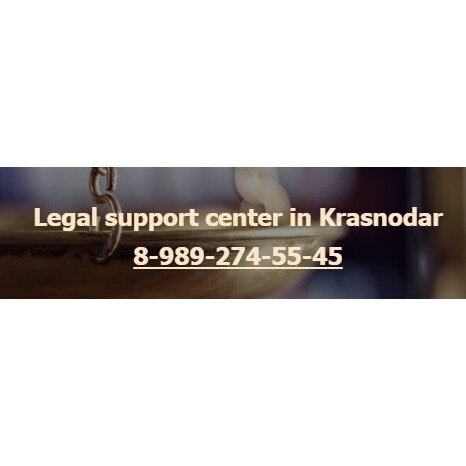Best Divorce & Separation Lawyers in Krasnodar
Share your needs with us, get contacted by law firms.
Free. Takes 2 min.
Free Guide to Hiring a Family Lawyer
List of the best lawyers in Krasnodar, Russia
About Divorce & Separation Law in Krasnodar, Russia
Divorce and separation laws in Krasnodar, Russia are part of the broader family law system governed by the Russian Family Code. The process is designed to address the dissolution of marriage, division of property, custody of children, and other related issues. Over the years, Krasnodar has seen a structured legal process that aims to balance the rights of both parties while safeguarding the interests of any children involved. The procedures are generally consistent with federal laws but may highlight regional specificities in court practices.
Why You May Need a Lawyer
Legal assistance in divorce and separation cases can be crucial due to the complexity and emotional strain involved. You might require a lawyer in situations such as contested divorces, disputes over child custody or alimony, property division, and if there are allegations of domestic violence. A lawyer can provide expert advice on your rights and obligations, represent you in court, and help navigate the legal procedures to ensure a fair resolution.
Local Laws Overview
The Krasnodar regional court system applies the Russian Family Code, which includes specific provisions for divorce proceedings. Some key aspects include the mandatory waiting period for divorce proceedings, requirements for mutual consent or grounds for a contested divorce, and laws governing the division of jointly acquired property. Child custody decisions are based on the best interests of the child, with courts also considering the child's opinion, depending on age.
Frequently Asked Questions
What are the grounds for divorce in Krasnodar?
Grounds for divorce include mutual consent, irretrievable breakdown of the marriage, and fault-based grounds such as adultery or abandonment. If mutual consent is absent, proof of such grounds may be required.
How long does it take to finalize a divorce?
The divorce process generally takes around two to three months if it is uncontested, but could extend considerably longer in contested cases involving disputes over children or property.
What if my spouse does not agree to the divorce?
If one spouse does not consent to the divorce, the court can still grant it if it determines that the marriage has irretrievably broken down, following sufficient evidence presented in court.
How is property divided during divorce?
Property acquired during the marriage is typically divided equally unless a prenuptial agreement specifies otherwise. The court considers the contributions of each spouse to the family’s welfare.
What are the rules regarding child custody?
Child custody is determined by considering the best interests of the child, involving considerations such as the child's opinion, existing emotional bonds, and each parent's ability to care for the child.
Can I relocate with my child after separation?
Relocation with a child requires the consent of the other parent or court approval. The court examines whether the move is in the child's best interests.
Is alimony mandatory, and how is it calculated?
Alimony may be ordered to support a spouse or children. The amount is determined based on the financial needs of the recipient and the payer’s financial capabilities.
What evidence is needed for a contested divorce?
Evidence can include financial documents, testimonies, detailed records of fault-based issues like infidelity, and documents related to children's needs and wellbeing.
Can prenuptial agreements affect divorce outcomes?
Yes, prenuptial agreements can dictate property division and financial responsibilities upon divorce, provided they are legally valid and enforceable.
What happens if one cannot afford legal representation?
The court may appoint free legal representation in specific circumstances, especially in cases involving child custody where legal assistance is considered vital to uphold children's rights.
Additional Resources
Individuals seeking more information or assistance can reach out to the Krasnodar Regional Court for procedural guidance. Legal aid organizations such as the Russian Bar Association and local family law attorneys can offer more personalized legal advice. Additionally, community centers often host workshops and provide counseling services to support individuals going through divorce and separation.
Next Steps
If you are in need of legal assistance regarding divorce and separation, it is advisable to consult with a certified family lawyer familiar with Krasnodar’s legal environment. Consider making an appointment with legal specialists to discuss your case, understand your rights, and determine the best course of action. Documentation of relevant financial and personal information is also essential for effective legal proceedings.
Lawzana helps you find the best lawyers and law firms in Krasnodar through a curated and pre-screened list of qualified legal professionals. Our platform offers rankings and detailed profiles of attorneys and law firms, allowing you to compare based on practice areas, including Divorce & Separation, experience, and client feedback.
Each profile includes a description of the firm's areas of practice, client reviews, team members and partners, year of establishment, spoken languages, office locations, contact information, social media presence, and any published articles or resources. Most firms on our platform speak English and are experienced in both local and international legal matters.
Get a quote from top-rated law firms in Krasnodar, Russia — quickly, securely, and without unnecessary hassle.
Disclaimer:
The information provided on this page is for general informational purposes only and does not constitute legal advice. While we strive to ensure the accuracy and relevance of the content, legal information may change over time, and interpretations of the law can vary. You should always consult with a qualified legal professional for advice specific to your situation.
We disclaim all liability for actions taken or not taken based on the content of this page. If you believe any information is incorrect or outdated, please contact us, and we will review and update it where appropriate.








